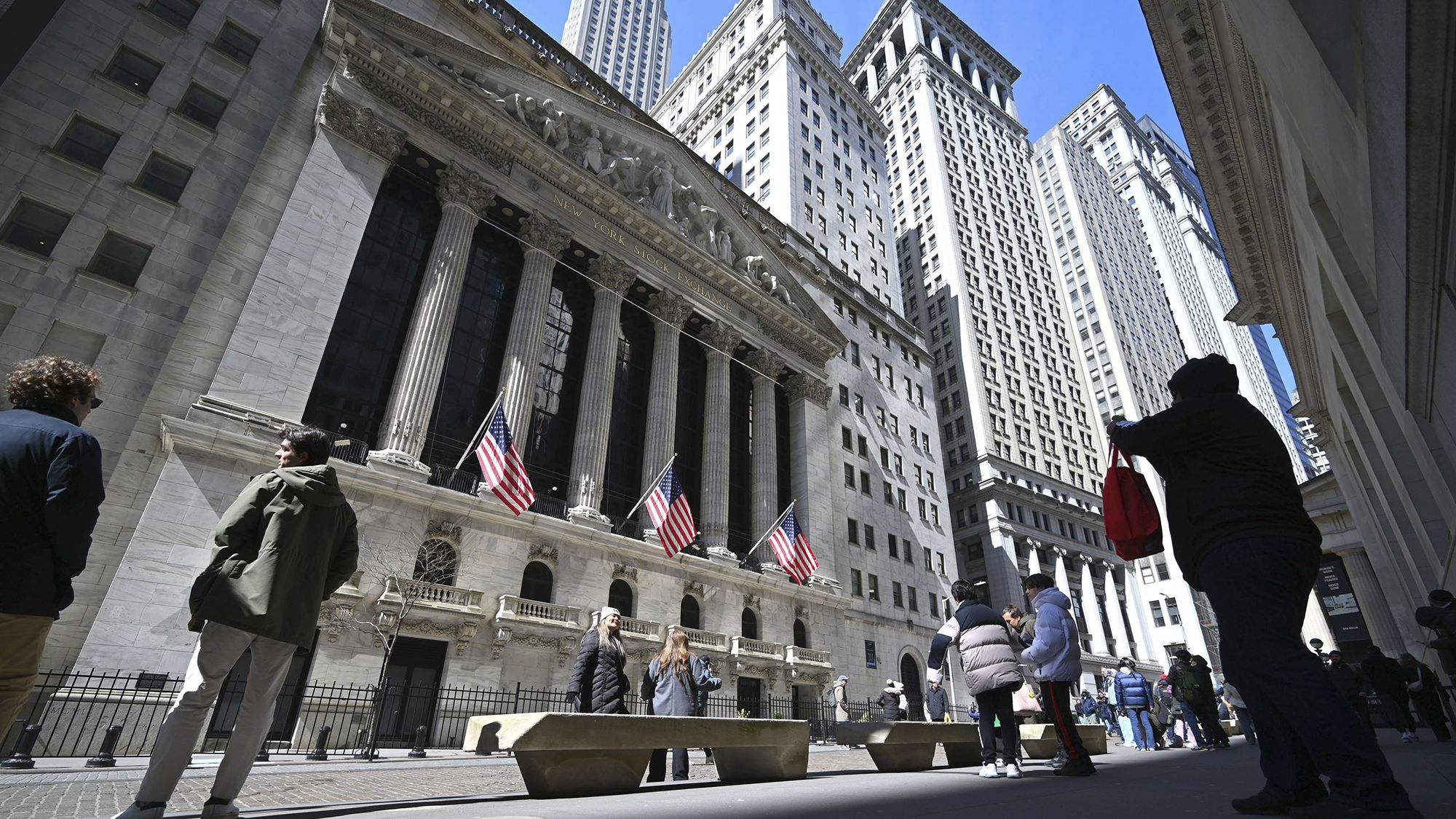US stocks fell sharply Wednesday after inflation data for March came in higher than expected.
The blue-chip Dow closed 422 points, or 1.1% lower. The S&P 500 lost 1% and the tech-heavy Nasdaq Composite fell by 0.8%.
US consumer prices picked up again last month, vaulting to a 3.5% increase for the 12 months ended in March, according to the latest Consumer Price Index data released Wednesday by the Bureau of Labor Statistics.
That’s up considerably from February’s 3.2% rate and marks the highest annual gain in the past six months. And while gas and shelter costs contributed more than half of that monthly increase, prices rose in pretty much every major category last month, the BLS said.
The Fed’s next move
Investors worry that the hotter-than-expected report will push back the Federal Reserve’s timeline for the rate cuts it has been hinting would come this year.
When the Fed raises interest rates or indicates that they may stay higher for longer, markets tend to fall. This happens because when it costs more for companies to borrow money, other investments might look better compared to stocks. Some areas like housing and utilities can get hit harder because they’re more affected by interest rate changes.
“Today’s crucial CPI print has likely sealed the fate for the June [Fed] meeting with a cut now very unlikely,” said Seema Shah, chief global strategist at Principal Asset Management, in a note Wednesday. “Even if inflation were to cool next month to a more comfortable reading, there is likely sufficient caution within the Fed now to mean that a July cut may also be a stretch, by which point the US election will begin to intrude with Fed decision making.”
Just 16.5% of investors expect an interest rate cut at the Fed’s June meeting, according to the CME FedWatch tool. That’s down from 56% one day ago.
About 57% of investors also believe rates will remain unchanged at the July meeting. That rate has more than doubled since Tuesday.
Minutes from the Federal Reserve’s March meeting, meanwhile, showed that some Fed officials fretted over inflation remaining stubbornly high.
Central bank officials “observed that significant progress had been made over the past year,” despite disappointing inflation readings for January and February, but some “noted that the recent increases in inflation had been relatively broad based,” according to the minutes, released on Wednesday afternoon.
Broad market reaction
The 10-year Treasury yield, which serves as a standard for mortgage and loan rates, surged past 4.5% after the March inflation report was released.
Wednesday’s market drop was broad as investors worried about what higher-for-longer interest rates could mean for the economy.
Shares of bank stocks fell. Bank of America, Wells Fargo and JPMorgan Chase, which reports first quarter earnings on Friday, all closed lower on Wednesday.
Tech stocks, including Microsoft, Amazon and Apple, also closed lower.
But investors may be getting ahead of themselves, said EY chief economist Gregory Daco. There are two more CPI reports and two Personal Consumption Expenditures reports due out before the Fed’s June policy meeting.
Many Fed officials “will wait to observe the read on their favored inflation gauge — PCE inflation — later this month before adjusting their views,” he wrote in a note on Wednesday.
Still, President Joe Biden acknowledged there is “more to do” to keep costs down.
“Today’s report shows inflation has fallen more than 60% from its peak, but we have more to do to lower costs for hardworking families. Prices are still too high for housing and groceries, even as prices for key household items like milk and eggs are lower than a year ago,” Biden said in a statement Wednesday morning.
As stocks settle after the trading day, levels might still change slightly.











